Are you considering getting a Dalmatian as a pet? If so, you’re in for a treat. These strikingly beautiful dogs are known for their unique spotted coats and friendly personalities. They make great family pets and are known for their loyalty and affectionate nature. However, before making any decisions, it’s important to do your research and learn more about the Dalmatian breed to ensure it’s the right fit for you and your lifestyle. In this article, we’ll explore some of the key characteristics of Dalmatians to help you make an informed decision about whether this breed is the right choice for you.
Breed Category: Non-Sporting Group
Country of Origin: Croatia
Average Size:56-61 cm
Average Weight:22-32 kg
Average Life Span: 11-13 years
Grooming Requirements: Moderate
Exercise Requirements:High
History and Origin
The Dalmatian is a breed of dog that is instantly recognizable due to its distinctive spotted coat. This breed has a long and fascinating history, with origins that can be traced back to ancient times. The Dalmatian has been used for a variety of purposes throughout history, including as a hunting dog, a carriage dog, and even as a firehouse mascot. In this article, we will explore the history and origin of the Dalmatian in detail.
The exact origin of the Dalmatian is somewhat of a mystery, but it is believed that the breed originated in the region that is now known as Croatia. The breed is named after the Dalmatia region, which is located along the Adriatic Sea. It is thought that the Dalmatian was originally used as a hunting dog, and was prized for its ability to track game and its endurance.
In the 18th century, the Dalmatian began to be used as a carriage dog. Carriage dogs were used to run alongside horse-drawn carriages, and were responsible for protecting the carriage and its occupants from other dogs and potential attackers. The Dalmatian was particularly well-suited to this role due to its speed, agility, and protective nature.
The Dalmatian’s popularity as a carriage dog continued to grow throughout the 19th century, and the breed became a common sight on the streets of London and other major cities. In addition to its role as a carriage dog, the Dalmatian also began to be used as a firehouse mascot. Firefighters would keep Dalmatians at the firehouse, and the dogs would run alongside the fire engines as they raced to put out fires.
The Dalmatian’s popularity as a firehouse mascot continued into the 20th century, and the breed became a symbol of the fire service in many countries around the world. Today, Dalmatians are still used as firehouse mascots in some places, although their role has largely been replaced by modern technology.
In addition to its roles as a hunting dog, carriage dog, and firehouse mascot, the Dalmatian has also been used as a circus performer and as a movie star. The breed’s distinctive appearance and outgoing personality make it a natural performer, and Dalmatians have appeared in a

Size and Breed Category
The Dalmatian is a medium-sized breed of dog that typically weighs between 23-27 kg and stands at a height of 56-61 cm at the shoulder. They have a distinctive spotted coat that is usually white with black or liver-colored spots. The breed is known for its athleticism and endurance, making them excellent running partners and agility competitors. Dalmatians are also known for their intelligence and trainability, which makes them a popular choice for families and working roles such as search and rescue or therapy dogs.
Dalmatians belong to the utility breed category, which means they were originally bred for a specific purpose but have since been adapted for a variety of roles. Historically, Dalmatians were used as carriage dogs, running alongside horse-drawn carriages to protect the horses and their cargo. They were also used as firehouse dogs, where they would accompany firefighters and their equipment to fires and help clear the way for the fire engine. Today, Dalmatians are still used in some fire departments and are also popular as family pets. Their friendly and outgoing nature makes them great companions for children and adults alike.
Fur Length and Colour
The fur of a Dalmatian is short and dense, with a glossy texture. The fur is typically white with black spots, although there are also liver-spotted Dalmatians with brown spots. The spots are well-defined and evenly distributed throughout the body, with larger spots on the back and smaller spots on the legs and head. The fur on the ears is usually solid-colored, either black or liver. The fur on the tail is also solid-colored, matching the color of the spots on the body. Overall, the fur of a Dalmatian is a defining characteristic of the breed, and is one of the reasons why they are so recognizable.
The color of a Dalmatian’s fur can vary depending on the individual dog. Some Dalmatians have black spots on a white background, while others have brown spots on a white background. The spots can be round or oval in shape, and can vary in size from small dots to large patches. The fur on a Dalmatian is short and smooth, with a shiny appearance. The fur is easy to maintain and does not require a lot of grooming, making it a popular choice for people who want a low-maintenance dog. Despite their short fur, Dalmatians are still prone to shedding, so regular brushing is recommended to keep their coat looking healthy and shiny.
Termperament and Trainability
Dalmatians are known for their energetic and playful temperament. They are highly active dogs that require plenty of exercise and mental stimulation to keep them happy and healthy. Dalmatians are also very social animals and thrive on human interaction. They are loyal and affectionate towards their owners and make great family pets. However, their high energy levels and need for attention can make them unsuitable for households with young children or elderly individuals. Dalmatians are also known for their stubborn streak, which can make training a challenge. However, with patience and consistency, they can be trained to follow commands and perform tricks.
Dalmatians are intelligent dogs that are quick to learn new things. They have a natural instinct to please their owners and enjoy being given tasks to complete. Dalmatians are also highly adaptable and can thrive in a variety of environments, from city apartments to rural farms. However, their high energy levels and need for exercise mean that they are best suited to homes with large gardens or access to open spaces. Dalmatians are also prone to certain health issues, such as deafness and skin allergies, which should be taken into consideration when choosing a breed. Overall, Dalmatians are lively and affectionate dogs that make great companions for active individuals or families.
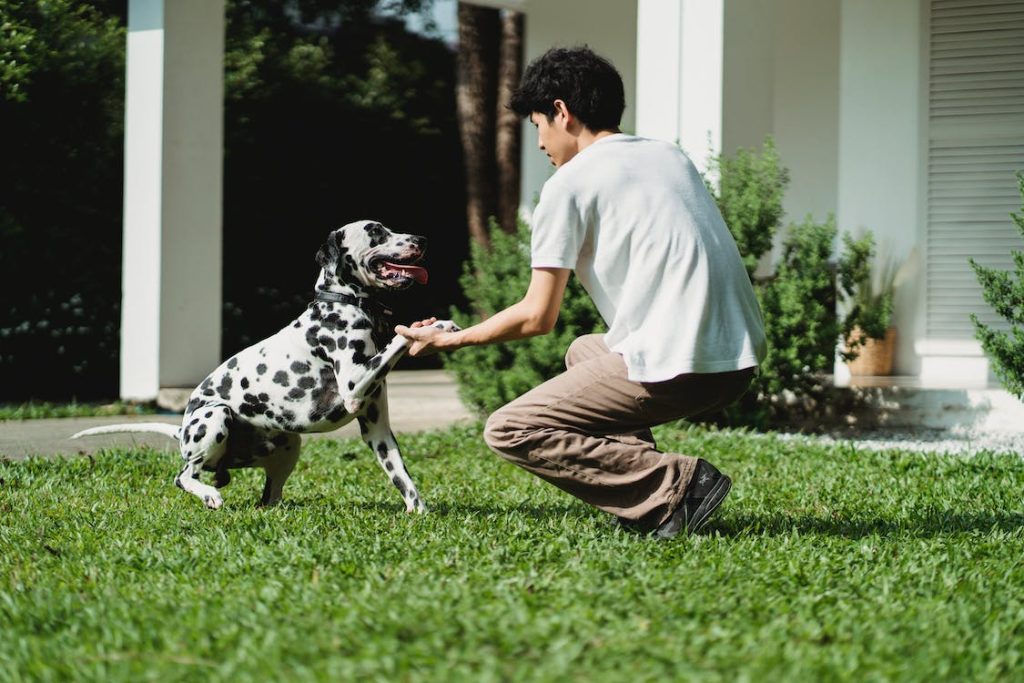
Known Health Conditions
Dalmatians are a breed of dog that are known to be prone to certain health conditions. One of the most common health issues that Dalmatians face is urinary stones. This is due to their unique metabolism, which causes them to produce high levels of uric acid. These stones can cause discomfort and pain for the dog, and may require surgery to remove. Dalmatians are also prone to deafness, with around 30% of the breed being affected. This can be caused by a genetic mutation, and can occur in one or both ears. Deafness can be managed with training and communication techniques, but it is important for owners to be aware of the condition and take steps to prevent accidents or injuries.
Another health condition that Dalmatians are prone to is skin allergies. This can be caused by a variety of factors, including food allergies, environmental allergens, and parasites. Symptoms of skin allergies can include itching, redness, and hair loss. Treatment may involve medication, changes to the dog’s diet, or environmental modifications. Dalmatians are also at risk for certain eye conditions, such as cataracts and progressive retinal atrophy. These conditions can cause vision loss and may require surgery or other treatments. Regular veterinary check-ups and preventative care can help to manage these health conditions and ensure that Dalmatians live happy and healthy lives.
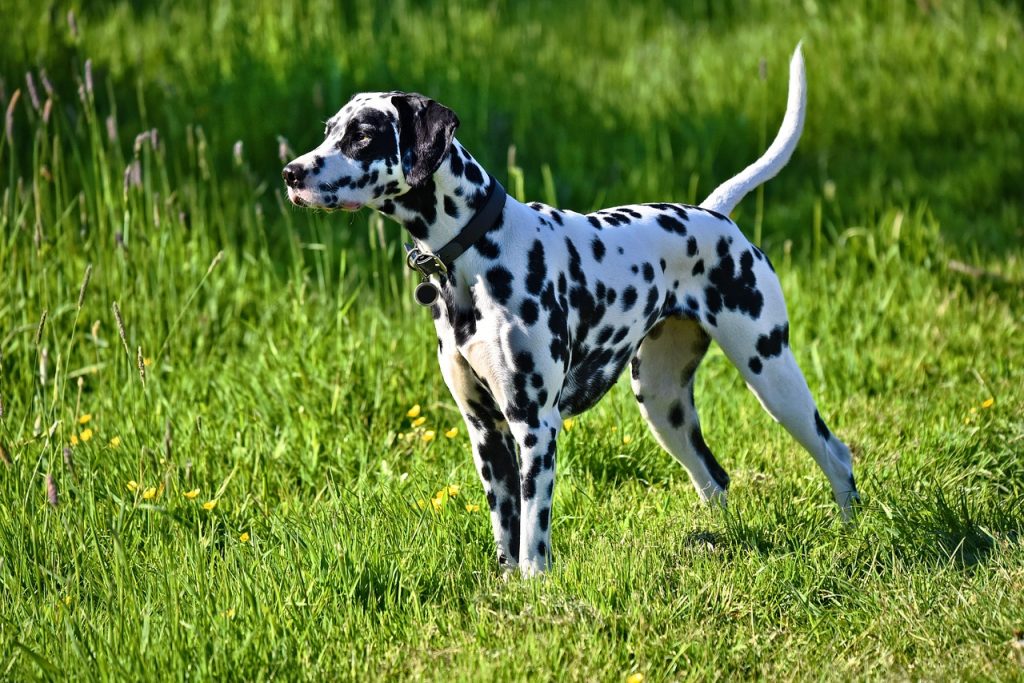
Openness to Strangers
Dalmatians are known for their friendly and outgoing nature towards strangers. They are a breed that is always eager to meet new people and make new friends. With their confident and sociable personalities, Dalmatians are quick to approach strangers and show them affection. They are not shy or reserved when it comes to meeting new people, and they often greet strangers with a wagging tail and a big smile. Dalmatians are also known for their loyalty and protective instincts, which means that they will always be on guard to protect their owners and their home.
When it comes to interacting with strangers, Dalmatians are very adaptable and versatile. They are equally comfortable in social situations as they are in more formal settings. Dalmatians are also very intelligent and can quickly pick up on social cues and body language, which makes them excellent at reading people’s emotions and responding accordingly. They are not easily intimidated by new people or unfamiliar environments, and they are always up for a new adventure. Overall, Dalmatians are a breed that is open and welcoming to strangers, and they are always eager to make new friends.
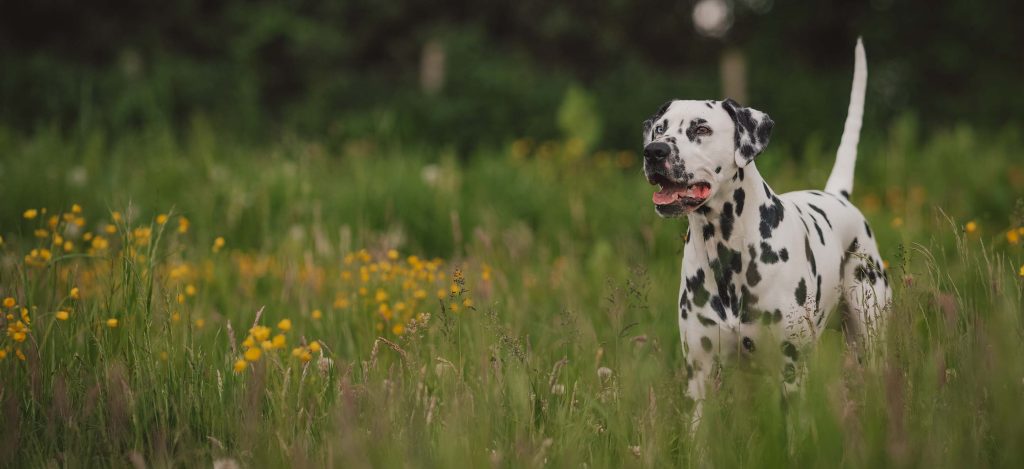
Playfulness Level
The Dalmatian is a highly energetic and playful breed of canine. They are known for their love of physical activity and their ability to keep up with their owners during long walks or runs. Dalmatians are also known for their love of games and their willingness to play with their owners for hours on end. Whether it’s a game of fetch or a game of tug-of-war, Dalmatians are always up for a good time. Their playful nature makes them a great choice for families with children, as they are always willing to engage in playtime with their young owners.
In addition to their love of physical activity and games, Dalmatians are also known for their mischievous nature. They are notorious for getting into trouble and causing chaos around the house. Dalmatians are known for their love of chewing on things, and they have been known to destroy furniture, shoes, and other household items if left unsupervised. Despite their mischievous tendencies, Dalmatians are incredibly loyal and affectionate towards their owners. They thrive on attention and love nothing more than spending time with their human companions. Overall, the Dalmatian’s playful nature and mischievous personality make them a beloved breed among dog owners.
Suitability as a Pet for Children
Dalmatians have a friendly and outgoing personality, making them a great choice for families with children. They are energetic and love to play, which can help keep children active and engaged. Dalmatians are also highly trainable and intelligent, making them easy to teach new tricks and commands. However, they do require a lot of exercise and mental stimulation to prevent boredom and destructive behavior. Additionally, Dalmatians have a short coat that requires minimal grooming, making them a low-maintenance pet for busy families.
Exercise Needs
Dalmatians require a significant amount of exercise to maintain their physical and mental health. As a medium to large breed, they need at least 60 minutes of daily exercise, which can be broken down into two or three sessions. This can include brisk walks, runs, hikes, or playing fetch in a secure area. Dalmatians also enjoy participating in canine sports such as agility, obedience, and flyball. It is important to note that Dalmatians have a high energy level and can become destructive if they do not receive enough exercise.
In addition to physical exercise, Dalmatians also require mental stimulation to prevent boredom and destructive behavior. Interactive toys, puzzle feeders, and training sessions can provide mental stimulation for Dalmatians. They are intelligent dogs that enjoy learning new tricks and commands. Socialization is also important for Dalmatians to prevent anxiety and aggression towards other dogs and people. Early socialization and training can help Dalmatians become well-adjusted and obedient companions.
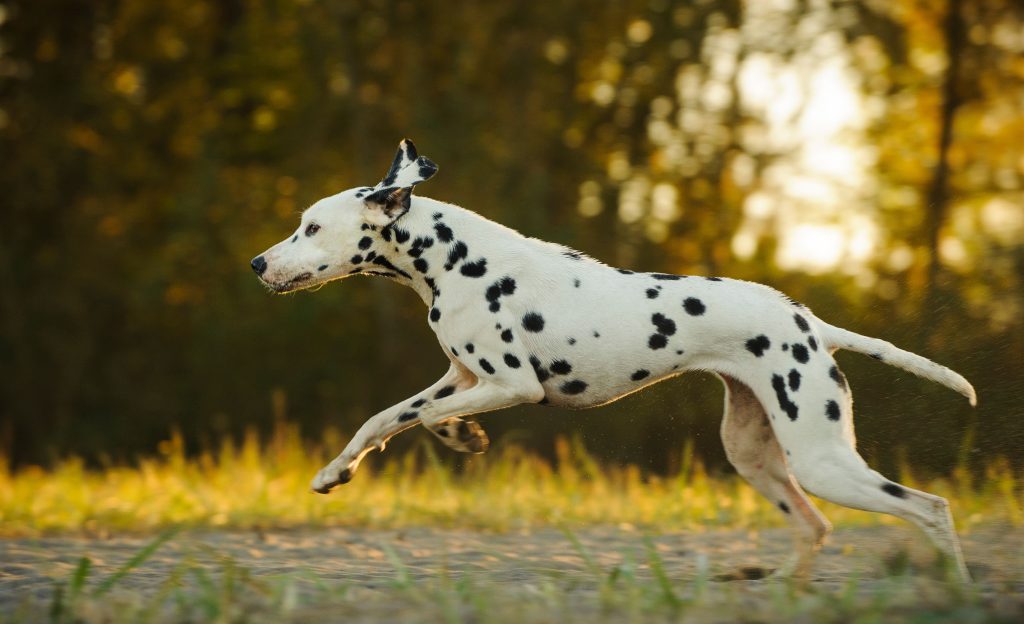
Suitability for a Multi-Pet Family
Dalmatians have a reputation for being friendly towards other pets. They are known to get along well with cats and other dogs, as long as they are socialized properly from a young age. However, it is important to note that every dog is different and some Dalmatians may not be as accepting of other pets. It is always best to introduce new pets slowly and under supervision to ensure a positive outcome.
Housing Requirements
Dalmatians require a spacious living environment that allows them to move around freely. They are an active breed that needs plenty of exercise, so a house with a large garden or access to open spaces is ideal. The garden should be securely fenced to prevent the Dalmatian from escaping, as they are known to be skilled escape artists. Additionally, Dalmatians are sensitive to extreme temperatures, so their living space should be well-insulated and provide adequate heating and cooling. It is important to note that Dalmatians are prone to developing separation anxiety, so they should not be left alone for extended periods of time.
Dalmatians also require a comfortable sleeping area that is away from any drafts. A soft, supportive bed is recommended to prevent joint problems, as Dalmatians are prone to hip dysplasia. They shed heavily twice a year, so regular grooming is necessary to keep their coat healthy and prevent matting. Dalmatians are also prone to ear infections, so their ears should be cleaned regularly. It is important to provide them with plenty of toys and mental stimulation to prevent destructive behavior. Dalmatians are a loyal and affectionate breed that thrive on human companionship, so they should be given plenty of attention and affection.
Summary
Dalmatians have a reputation for being energetic and playful dogs, making them a great choice for families with active lifestyles. They are also known for their loyalty and intelligence, which can make them easy to train. However, their high energy levels mean that they require plenty of exercise and mental stimulation to keep them happy and healthy. Additionally, Dalmatians can be prone to certain health issues, such as deafness and urinary stones, so potential owners should be aware of these risks and take steps to prevent them. Overall, Dalmatians can make wonderful pets for the right family, but they require a lot of time, attention, and care.
Dalmatian Dog FAQS
Dalmatians can be stubborn and require consistent training and socialization from a young age.
Yes, Dalmatians are generally good with children and make great family pets. However, they may be too energetic for very young children.
Dalmatians are prone to deafness, urinary stones, and skin allergies. Regular vet check-ups are recommended.
Dalmatians can live in apartments as long as they get enough exercise and mental stimulation. However, they are better suited for homes with a yard.
Dalmatians are known for their distinctive spotted coat and their ability to run long distances without getting tired. They are also the official mascot of the fire department.
Yes, Dalmatians shed a lot and require regular grooming to manage their shedding.
Dalmatians are very active dogs and require at least 1-2 hours of exercise per day.
Dalmatians can grow up to 56-61 cm in height.
The average weight of a Dalmatian is between 22-32 kg.
The average lifespan of a Dalmatian is 11-13 years.
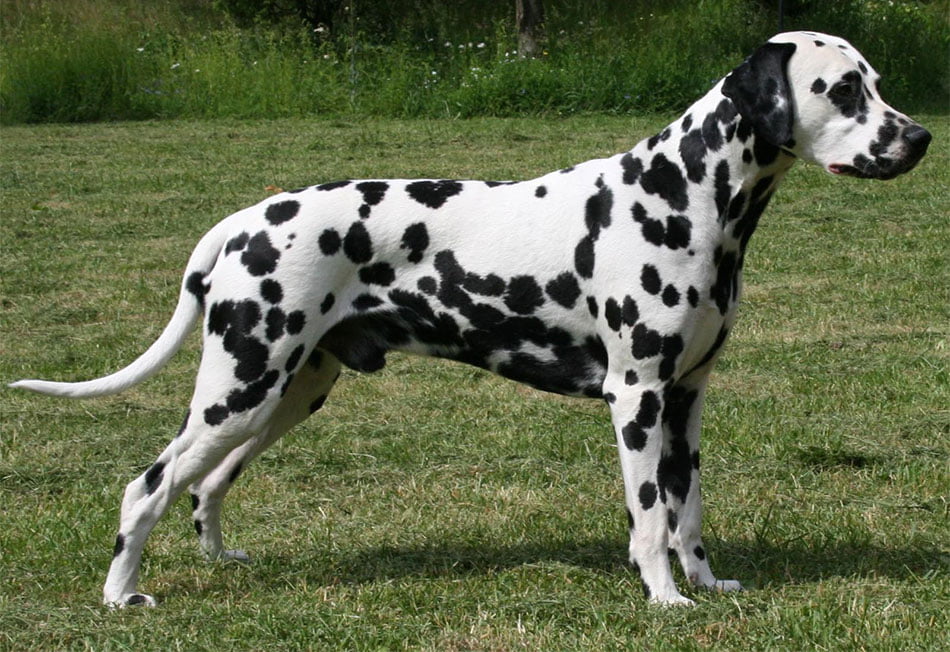

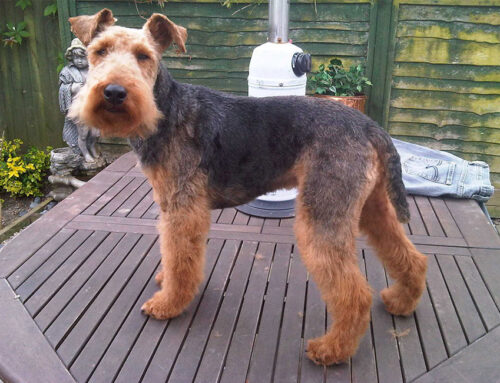

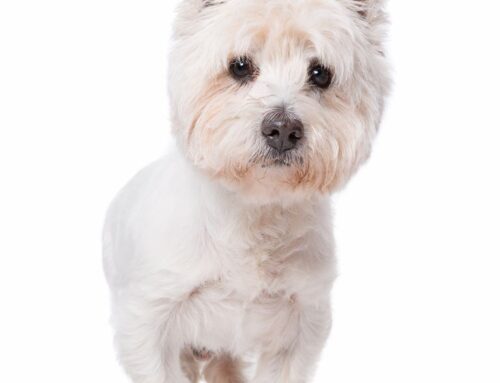
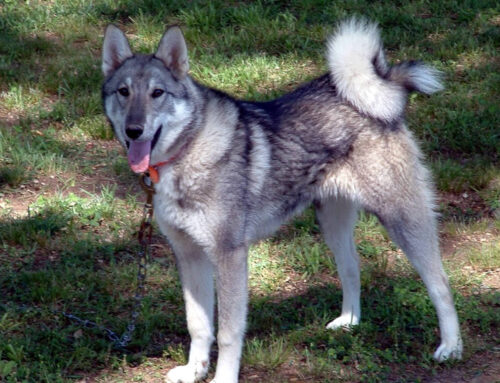
Leave A Comment